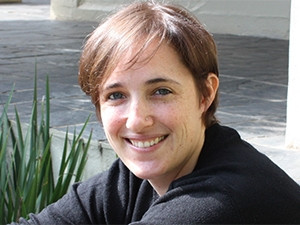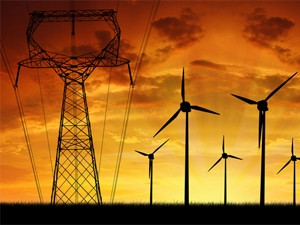
Eskom risks becoming obsolete if it continues to invest in dirty, unreliable and dangerous technologies like coal and nuclear.
This is the assertion by environmental activist group Greenpeace, following the decision made by the power utility to not sign power purchase agreements with independent power producers after the current round is finalised.
Eskom expressed concerns that private producers, from which it is compelled by government to buy at prices it does not negotiate, will undermine its future revenue streams.
Responding to ITWeb via e-mail, Melita Steele, Greenpeace Africa's senior climate and energy campaign manager, said the activist group believes it is completely unacceptable that Eskom continues to hold South Africans to ransom so the utility can maintain its stranglehold on the country's economy and electricity supply, at whatever cost.
"The utility can no longer be allowed to continue to put its short-sighted profit motive ahead of the people of this country. The reality is that renewable energy projects are the only electricity projects delivering on-time and on-budget in South Africa, and clearly Eskom feels threatened because it has practically no renewable energy projects. Instead, it is currently building two of the biggest coal-fired power stations in the world and is on a massive pro-nuclear offensive, as the utility aims to play a role in the exorbitantly expensive proposed new nuclear build programme," Steele says.
Complete monopoly
She notes South Africans deserve reliable, safe and affordable electricity, and Eskom's current business model - based almost entirely on coal and nuclear at the moment - simply cannot deliver this type of electricity. As a result, she adds, Eskom is trying to block renewable energy investments.
"As far as Greenpeace is concerned, Eskom must either shift its investments in coal and nuclear towards renewable energy, or it must get out of the way so that others are able to."

According to Steele, the fact that Eskom has an almost complete monopoly over electricity production, distribution and transmission is not working. Eskom cannot be allowed to be both referee and player, when the only role it takes seriously is blocking investments that are a threat to its bottom line, she notes.
"Indeed, one of the barriers to rooftop solar in South Africa is that Eskom believes that people producing their own electricity from solar panels is a threat to their profits. It seems like no coincidence that Eskom's latest statement comes barely a month after [Eskom CEO] Brian Molefe's anti-renewable energy rant, when he controversially claimed that renewable energy is sub-standard - at a time when renewable energy is the only technology currently delivering new electricity capacity on time and on budget to South Africa's constrained grid.
"By claiming that renewable energy doesn't deliver, and refusing to sign new connection agreements, Eskom is clearly running an anti-renewable energy campaign, which must be stopped in its tracks."
Ridiculous claims
She believes that if Eskom were to invest in renewable energy, South Africans would see significant savings in terms of electricity prices, and the country would see emissions reductions, and reduced impacts on people's health and on scarce water resources.
Eskom has made ridiculous claims about how renewable energy is unreliable and cannot deliver, but none of these are accurate, and in fact, investments in concentrating solar power will go a long way to creating 'baseload' power, which is available in the evenings, she points out.
"Indeed, Greenpeace cannot understand how Eskom's CEO can call renewable energy unreliable when the country's electricity supply is dominated by nearly 90% coal power, and renewable energy still only contributes approximately 6% of South Africa's electricity."
Greenpeace believes the "toxic lack of direction from the Department of Energy plays right into Eskom's hands, and it is the people of this country who are paying the price. If Eskom will not deliver clean, affordable, safe electricity to the people of this country, then its monopolistic approach to electricity supply must be transformed."
Steele says there is no doubt investments need to be made in the country's grid and electricity production, but maybe Eskom should not be the entity making them, and neither should it be the entity buying power from other producers. Renewable energy can create jobs, stimulate investments and deliver cheaper electricity, and Eskom must either get with the programme or get out of the way, she says.
Death spiral
Meanwhile, Graham Schwikkard and Aaron Burton from management and consulting firm Datta Burton & Associates, say Eskom is at risk of losing demand to renewables-storage, but municipalities are at even greater risk.
According to them, large metros generate around 30% of their revenue from electricity sales with profit margins of 15-20%. If high income and business customers begin to defect (or even reduce consumption), municipalities will find themselves needing to charge higher prices for the remaining few who do pay (as there are subsidised and general high debtor customers). This creates a vicious cycle of defection known as the utility death spiral, they note.
"By our estimates, if Eskom loses just 300 000 high-use customers, it will have to increase tariffs 23% just to maintain current revenue levels. Placing this on top of general price increases, and then new nuclear build costs, would be disastrous.
"A better option for Eskom and municipalities would be to redesign the grid and distribution model to focus on the benefits and generating properties of renewables (such as Germany's E.ON). Government can contribute by pushing renewables through tariff structures, private partnerships, and creating a new job generating industry within South Africa."
Share